Hey there! Are you looking to navigate the process of deferring your college admission? It's a common situation that many students face, whether due to personal circumstances, health issues, or exciting opportunities that arise. Crafting the right letter can make all the difference in ensuring your request is understood and approved. Ready to learn how to create a compelling deferral request? Keep reading!

Personal information and recipient's details
Deferring college admission can have significant implications for a student's academic journey. A well-crafted request entails specific personal information including the student's full name, date of birth, the intended major, and the college or university to which they have applied. Additionally, the recipient's information should include the name of the admissions officer, the specific college or university's admissions office, and the corresponding address to ensure the letter reaches the appropriate department. These details are crucial for clearly identifying the applicant and facilitating the processing of the deferment request. Including a clear reason for the request, such as personal circumstances or unexpected life events, can further bolster the case for deferment.
Subject line stating deferment request
Subject: Request for Deferment of College Admission I am writing to formally request a deferment of my college admission to [College/University Name], originally scheduled for [start term, e.g., Fall 2023]. After careful consideration, I have decided to postpone my enrollment for one academic year due to [specific reason, e.g., personal circumstances, health issues, or opportunities for personal development]. I believe that taking this time will allow me to fully prepare for my academic journey and contribute positively to the [specific program, e.g., Bachelor of Arts in Psychology] curriculum upon my eventual admission. Thank you for considering my request, and I look forward to your understanding and support in this matter.
Explanation for deferment reason
Deferring college admission can be necessary due to various reasons. Medical circumstances, such as a required surgery or ongoing health concerns, may necessitate a break before starting college. Personal situations, including family obligations or significant life changes, can also prompt a deferment. Academic readiness, for instance, if a student needs additional time to strengthen their foundation in certain subjects, is a common reason. Financial considerations may arise, such as securing a stable income or obtaining funding before beginning college courses. Each reason underscores the importance of making informed decisions about one's educational journey while ensuring optimal conditions for success.
Proposed deferment duration and terms
Submitting a request for deferring college admission requires careful consideration of various factors. Most colleges, such as Harvard University or Stanford University, allow students to defer admission for a duration typically ranging from one semester to a full academic year. Students must provide solid reasoning, such as medical issues, personal circumstances, or opportunities like internships or study abroad programs. Most institutions require a formal letter indicating the specific duration of deferment requested--six months or twelve months--and any terms associated, such as maintaining enrollment deposits or providing updates on the student's plans. It is essential to include relevant details, such as anticipated activities during the deferment period and how they will contribute to personal growth or academic readiness, while also ensuring compliance with the college's policies regarding deferred enrollment.
Expression of gratitude and reaffirmation of college choice
Expressing gratitude for the opportunity to attend prestigious colleges, like Harvard University or Stanford University, enhances the admission experience. Reaffirming strong interest in the specific program, such as Computer Science or Environmental Studies, emphasizes commitment. Deferring admission to the following academic year offers time for personal development and addressing unforeseen circumstances. Including a respectful request for clarity on the deferral process, which may involve timelines and requirements, demonstrates proactivity. Ensuring clear communication reinforces dedication to joining a vibrant academic community in the future.
Letter Template For Deferring College Admission Request Samples
Letter template of request to defer college admission for personal reasons.
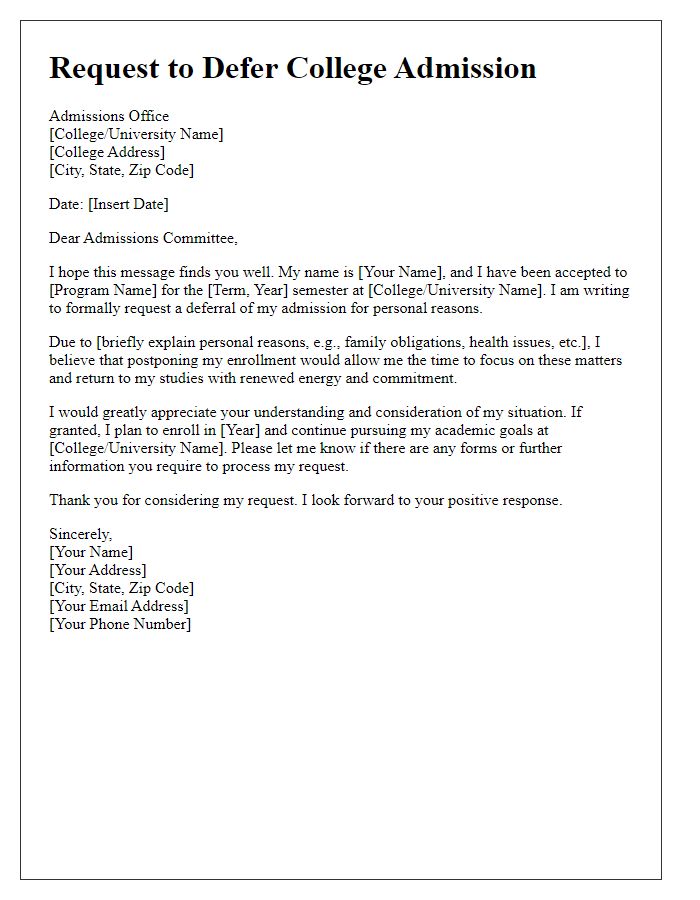
Letter template of deferment request for college admission due to financial constraints.
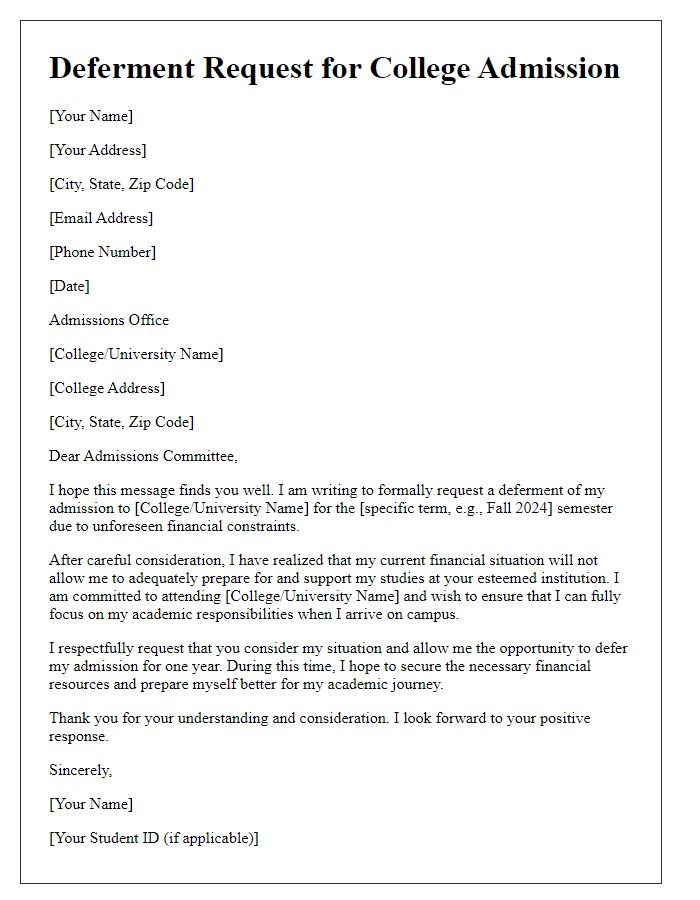
Letter template of request to postpone college admission for health reasons.
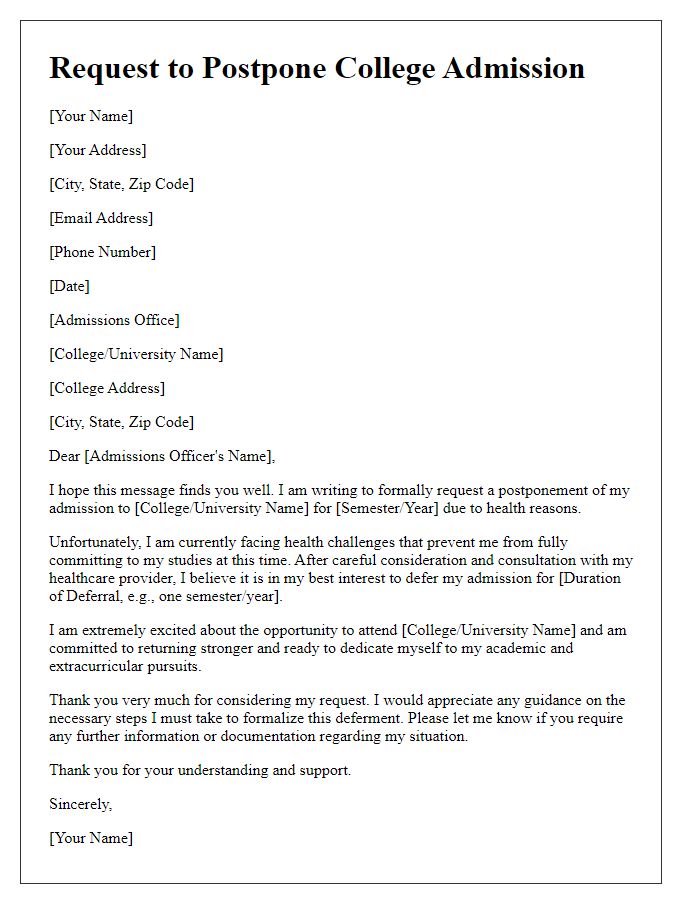
Letter template of college admission deferral application for travel opportunities.
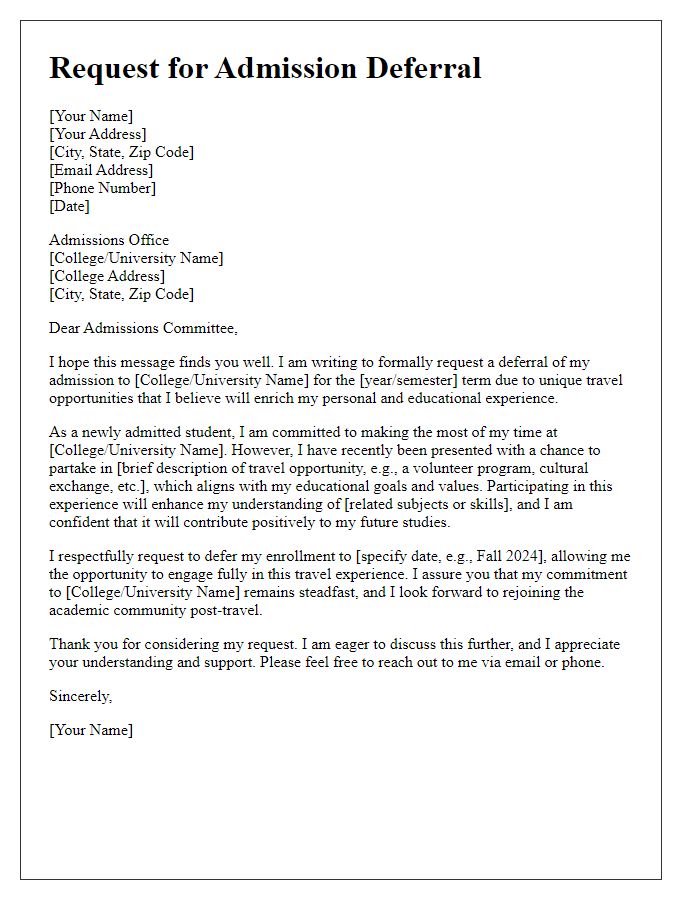
Letter template of request to delay college admission for family obligations.
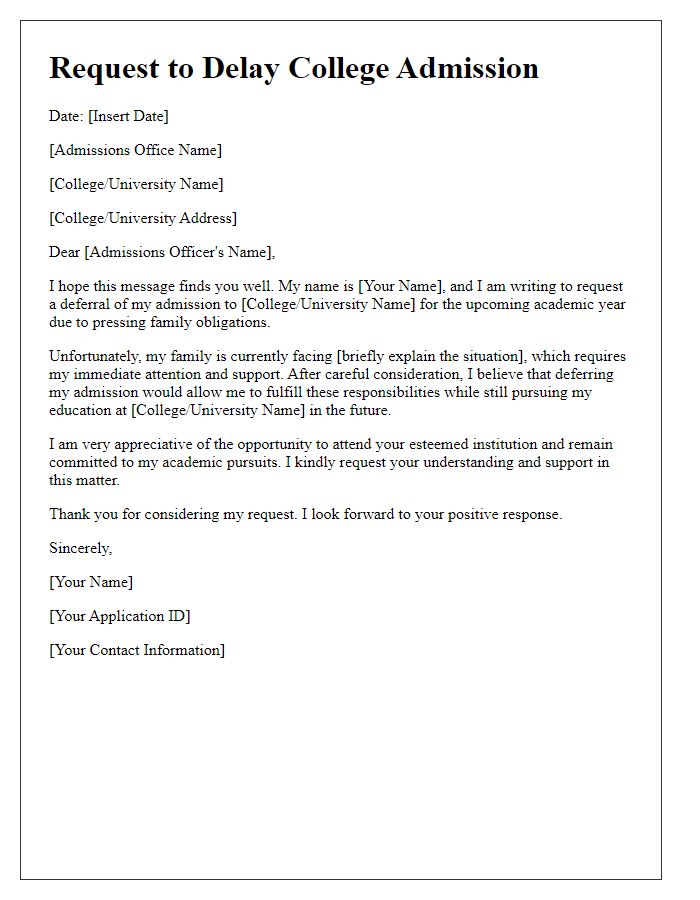
Letter template of college admission deferment due to academic pursuits.
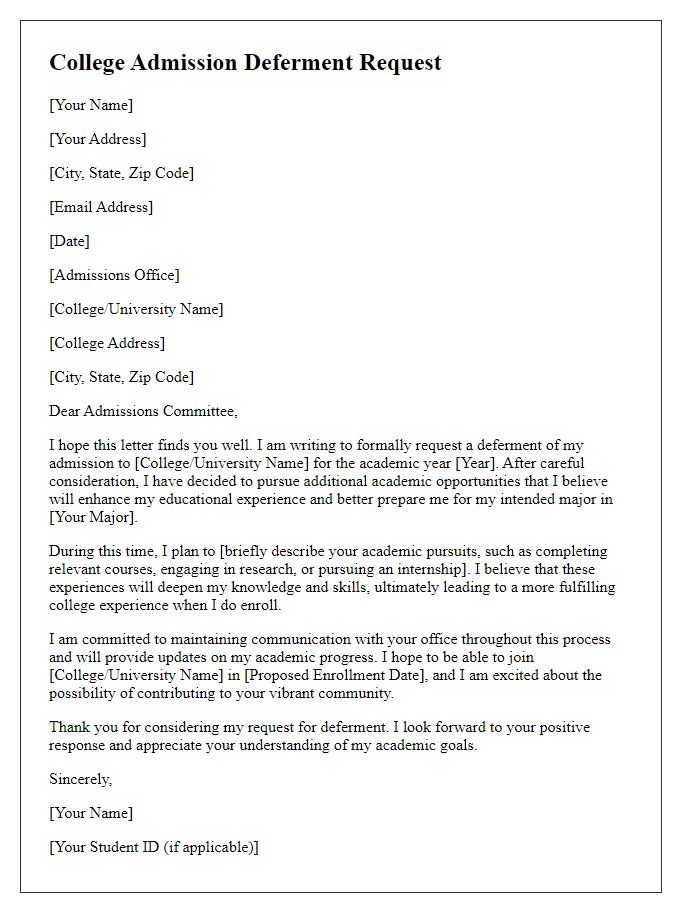
Letter template of request to defer admission for internship experiences.
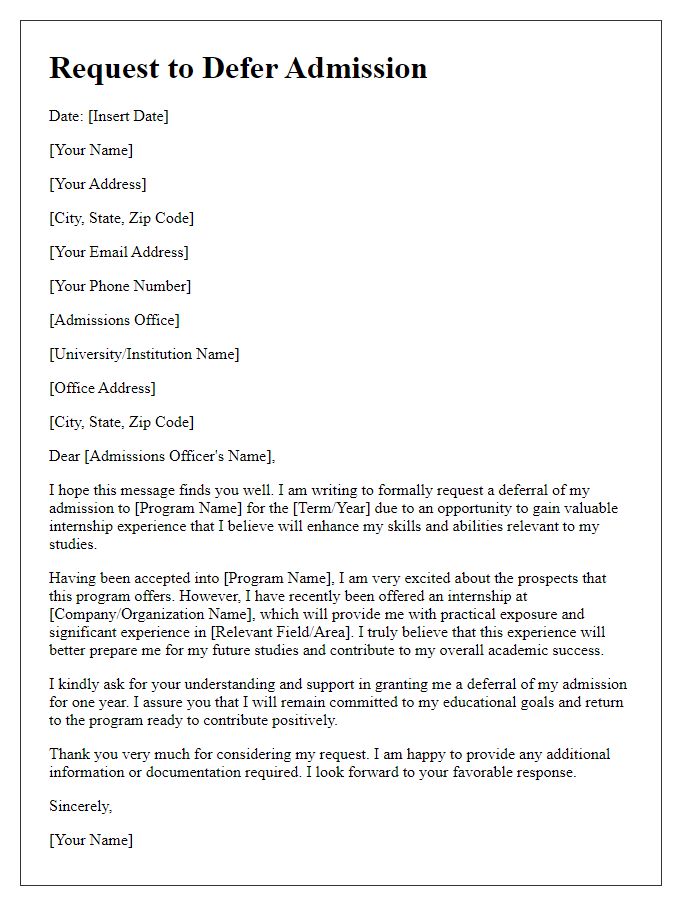
Letter template of deferral request for college admission to explore career paths.
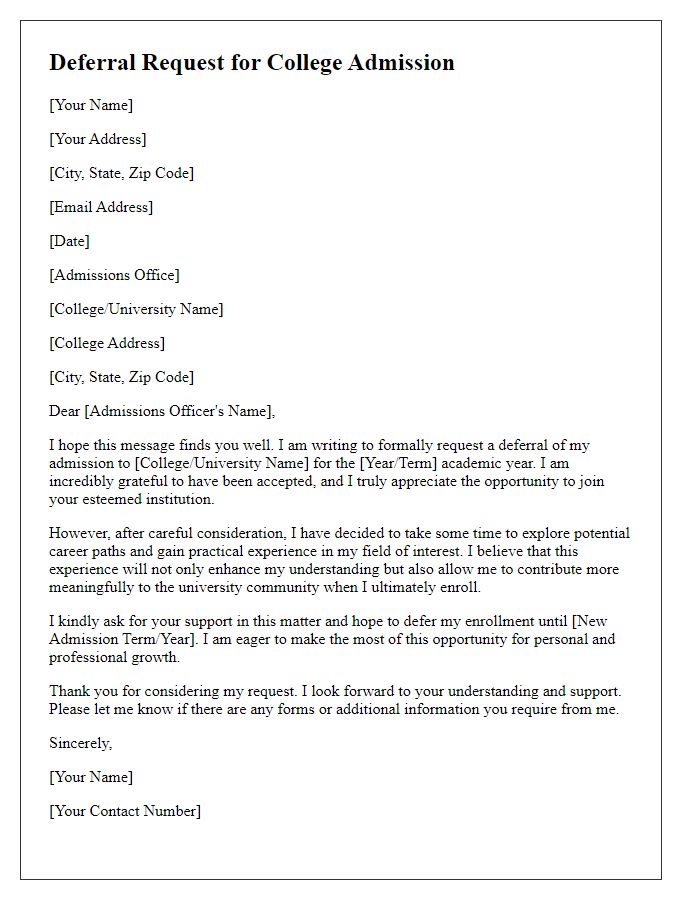
Letter template of request to postpone admission due to unforeseen circumstances.
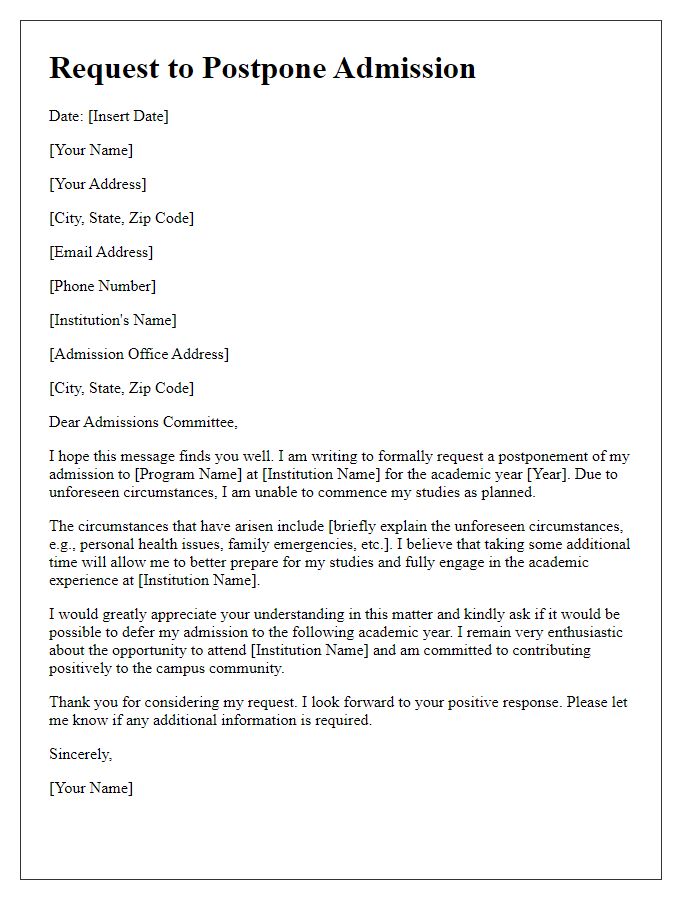

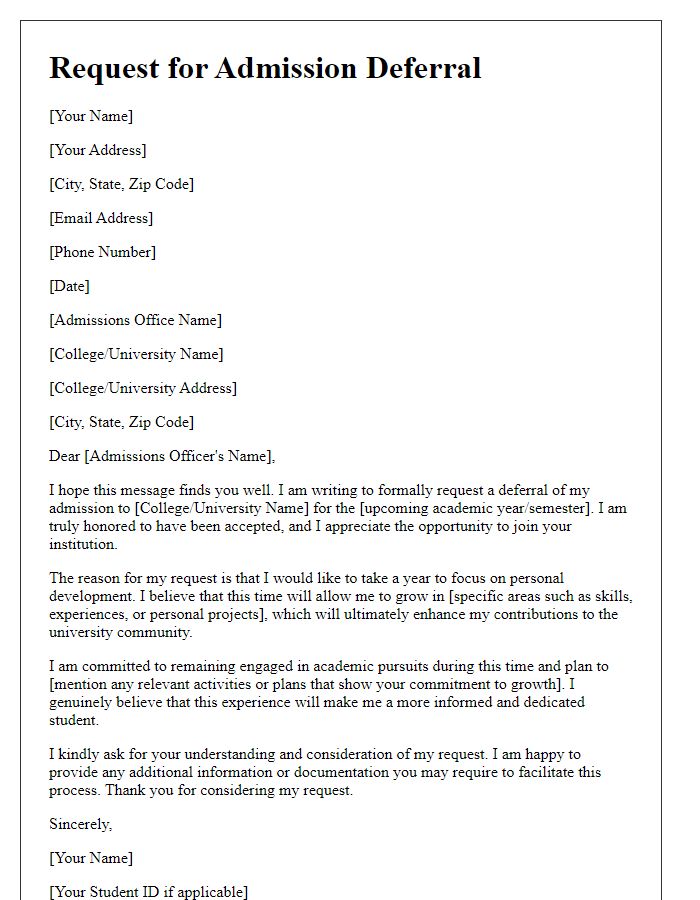


Comments